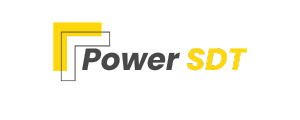Paying off high-interest credit cards is a common goal for many individuals looking to improve their financial health. High-interest debt can quickly become overwhelming, but with the right strategies, it’s possible to eliminate it and move towards a more secure financial future.
Managing credit card debt effectively requires a combination of discipline, strategy, and sometimes, a change in lifestyle. The journey may seem daunting, but the liberation from debt is both empowering and financially beneficial.
This guide will explore several methods to help you tackle high-interest credit card debt. By adopting these strategies, you can formulate a plan that’s tailored to your financial situation and goals.
Understand Your Debt
Before you can tackle your debt, it’s crucial to have a clear understanding of what you owe. List all your debts, noting down the interest rates, balances, and minimum payments. This will help you identify which debts are costing you the most in interest and should be prioritized.
Understanding the specifics of your financial obligations will also enable you to set realistic goals and timelines for paying off your debt.
Knowledge is power, and in the context of debt management, this couldn’t be truer.
Create a Budget and Stick to It
A well-structured budget is your best ally in the fight against high-interest debt. It allows you to see where your money is going and identify areas where you can cut back. The extra funds can then be directed towards paying off your credit cards more quickly.
There are numerous budgeting methods and tools available, so find one that suits your lifestyle and stick with it. Consistency is key to successful budgeting.
Remember, a budget shouldn’t be restrictive but empowering, giving you control over your finances.
Consider the Debt Snowball or Avalanche Method
The debt snowball method involves paying off your smallest debts first, gradually working your way up to the larger ones. This can create a sense of accomplishment and motivation to keep going.
Alternatively, the debt avalanche method focuses on paying off the debt with the highest interest rate first, potentially saving you more money in interest over time.
Both strategies have their merits, so choose the one that best aligns with your financial personality and goals.
Look into Balance Transfer Credit Cards
If you have good credit, you might qualify for a credit card that offers a 0% APR on balance transfers for a limited period. Transferring your high-interest balances to such a card can give you a breather from interest, allowing you to pay down the principal faster.
Be mindful of balance transfer fees and ensure you can pay off the balance before the promotional period ends and the standard APR applies.
This strategy requires discipline and a clear pay-off plan to be effective.
Seek Professional Advice
If your debt feels unmanageable, it might be time to seek help from a credit counseling agency. They can offer personalized advice, help you craft a budget, and even negotiate with creditors on your behalf to lower interest rates or secure more favorable repayment terms.
Ensure you choose a reputable agency to avoid scams and further financial strain.
Professional advice can provide clarity and a path forward during stressful financial times.
Consider a Side Hustle
Increasing your income through a side job or freelance work can provide extra funds to pay off your debt faster. Even a few hours a week can make a significant difference over time.
Evaluate your skills and interests to find a side hustle that you can manage alongside your main job.
Every extra dollar earned can be directed towards your debt, accelerating your journey to financial freedom.
What is Paying Off Debt?
Paying off debt involves making regular payments to reduce and eventually eliminate the money you owe to lenders or creditors. It’s a process that requires discipline, planning, and sometimes, lifestyle changes.
Successfully paying off debt not only improves your financial situation but can also lead to less stress and a better quality of life.
Understanding the strategies available and implementing them effectively can turn the daunting task of debt elimination into a manageable and rewarding journey.
